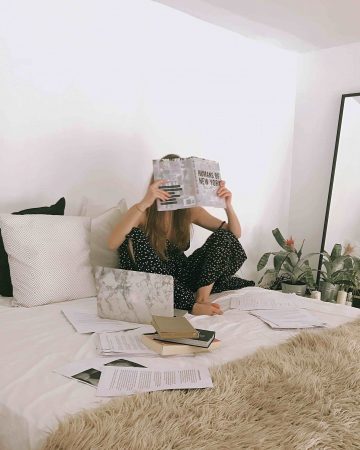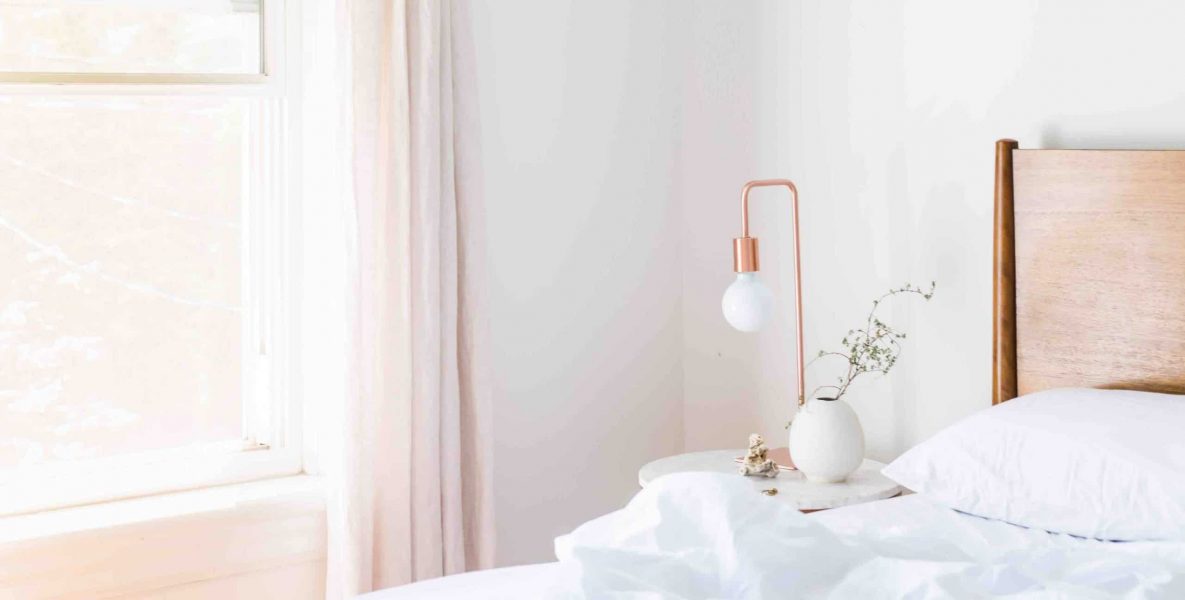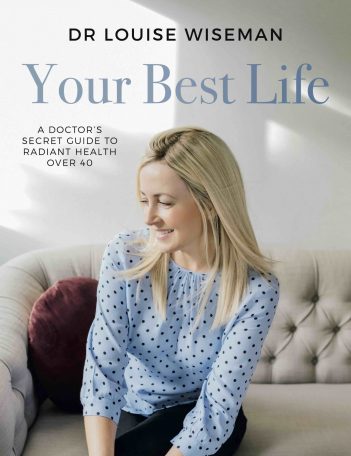Sleep is the ultimate lifestyle accessory by necessity. No matter your age, social status or bank account, investment in sleep is a basic human need. You cannot purchase, delegate or avoid it. This ubiquitous beauty boost and ‘nourishment for your being’ is yours for free if you want to take it.
Shift workers and young parents become obsessed with their shuteye bank. Sleep requirements vary between individuals based on physiology, age and health. If you don’t get the correct sleep for you, your mood deteriorates, energy and motivation are sapped. Chemical changes mean your immune system comes under threat, weight can increase, libido and even fertility can decline. Ability to concentrate and retain information worsens and relationships and self esteem are not enhanced either.
After a bad night you may miss exercise that day and hormone changes mean you crave sugar, thinking it will give you the buzz you are missing. There is no quick fix to replace sleep. We all suffer with our sleep at different times in our life, often related to stress. That is normal. Medical studies differentiate between true insomnia and normal sleep problems. True insomnia is a case for a doctor’s appointment.
Healthy sleep cycles between three deepening stages of Non-rapid eye movement (NREM) dreamless sleep and Rapid eye movement (REM) sleep. About 90 minutes after falling asleep REM sleep occurs and is when most dreaming occurs. We have 3 to 5 cycles of REM per night. During sleep our brain stores information for memory.
BASIC SLEEP HYGIENE
Not the shower before you slip between the sheets! This term originated as recommendations for professionals to give poor sleepers. It reflects our society today that we need to consciously create a routine to sleep. When you think about it, generations ago slumber would have beckoned after a working day with exhaustion and no electronics. We would have simply been physically exhausted when our head hit the pillow.
TIMING and ROUTINE
Most people need 7 – 9 hours sleep- research suggests that alongside deficient sleep, excessive sleep may also predict some disease.
We have a Circadian Rhythm (24-hour sleep/wake cycle) influenced by light exposure and chemical pathways. It tells us when to feel awake and sleepy. With jetlag this is thrown into chaos. Drinking plenty of fluids, changing to meal timings of the destination country and morning light exposure, all lessen the effects of jetlag and many have clever routines of lessening the effect.
We are happiest when adhering to natural sleeping times. There is a link between worsening mental illness and poor sleep. Control your routine and symptoms may improve.
Consciously enjoying the process of beauty regimes before bed may subconsciously prepare you for slumber.
Waking at the same hour helps our sleep routine- a ‘lie in’ does not help body clocks long term.
Power nap? Scientists suggest that <30 minute naps could be useful if tired, with more than 4 hours to go before bed time so it doesn’t interfere with sleep.
ENVIRONMENT
Body temperature needs to drop slightly for sleep. Ideal room temperature is 16-18 degrees Celsius- above 24 and we get restless. Wearing socks to keep extremities warmer helps some drift off ironically but you may have to take them off later in the night?
If suffering menopausal flushes, consider cooler bed covers and clothing that may wick away moisture. You must recoup any fluids lost in sweat to avoid headaches the next day. Keep a nice glass of water next to your bed to have before you rise and start the day as you mean to go on.
Cognitive behavioural therapy (CBT), yoga, acupuncture, hypnotherapy and reflexology may help you cope with flushes but if seriously affecting you then discuss with your doctor. HRT may be the answer.
Light keeps us awake. Blackout blinds are not just for babies. Be like Audrey Hepburn and try a silk eye mask loosely fitted around this delicate area. The act of wearing the mask signifies ‘sleep mode’ to your brain and may prevent early morning light waking you. A sleep mask has dramatically improved my sleeping pattern over the last two years. A glowing alarm clock must be moved if stopping you sleeping.
Blue light emitted from electronics is a new threat. Scientists are still collating evidence to understand the effects on humans. Sit in front of a computer screen all day and it is no coincidence that your makeup sweats off. The power of the blue light from your phone ‘conveniently’ taken into bed at night is worrying. The light tells your body it is still daytime even though the owls may be hooting. Your body reduces its melatonin (biological marker of night time). Your circadian rhythm is set later than it should. The fact that scientists are studying whether there is going to be a future link between eye disease and blue light is a concern. The melatonin our brain produces at night is needed to regulate many processes in our bodies- cholesterol, sugar, calcium regulation, recovery of the nervous system and removal of waste products from the brain. Many processes that we would consider anti- ageing in the body are performed during sleep. Hunger and other hormones are regulated.
Reduce sleep and you are literally ageing faster and more likely to gain weight.
Significantly reduced melatonin reduces protection from breast, prostate and other cancers. Put your tech into night mode early and remove electronics from your sleeping area. It only takes a cheap alarm clock to replace your phone in the bedroom. Your love life and sleep may benefit!
A pet may disrupt sleep/cause allergies. If it is for your reassurance, establish where the pet sleeps. Allergies or scratching from a pet in bed are more detrimental than a pet sleeping on the floor.
Noise disrupts sleep for some. ‘Pink noise’ is a range of frequency of sound (similar to the sound of running water) used in studies to stimulate changes in sleep waves and possibly also improve memory recall. This will be explored more in future reserch but for now if you discover a calming soundtrack that helps you drift off, then that is the right one for you.
MENTAL
Early morning wakening is a feature of depression and sleep problems can stem from anxiety. In milder cases work on what you can control. Journal or list your worries in the evening to offload onto the next day. If it helps, be a girl guide and prepare the night before- clothes, your bag, anything to reduce your morning ‘to do’ list! Avoid horror films and similar before bed as they may stimulate your brain too much!

If waking in the night and watching the clock, maybe get up and make yourself a drink. The act of rising may lower your temperature aiding sleep. Try 4/7/8 breathing – breathe in for 4s, hold for 7 s and breathe out slow for 8 seconds. The physiologist in me knows this works because it stimulates our vagus nerve (slows the heart) but the worrier in me knows this just relaxes! Find your own combo of slower breathing. If meditation is your thing work on a mantra that calms you.
PHYSICAL
Exercise within the day may aid sleep at night. Relaxing yoga helps some before bed. Stressful exercise just before bed may disrupt sleep. Find what is right for you.
Alcohol encourages drifting off to sleep but you are likely to awaken in the night. You have less REM restful sleep after alcohol. You can be dehydrated/need the toilet so quality of sleep is reduced. You produce heat as you metabolise the alcohol preventing sleep.
Nicotine is a stimulant and smoking may dry out nasal passages and cause potential chronic inflammation of throat tissues increasing snoring or disrupted breathing.
Caffeine effect will depend on your tolerance. Triple espressos at 9pm will leave all but caffeine aficionados totally wired between the sheets. A reasonable rule is none after 4pm. If you are caffeine sensitive, then STOP midday.
Spicy food tolerance may be different between individuals. If you suffer reflux or indigestion eat earlier in the evening.
LUXURY SLEEP HYGIENE
The power of bathing and magnesium salts
Expert Medical Herbalist Katie Pande BSc explained to me how magnesium plays a vital role in the functioning of nervous system cells and many processes in the body. Magnesium salts are best absorbed through skin so there has been an evolution in people using Epsom salts in the bath. Absorption through feet is allegedly effective so foot baths are recommended by nutritionists to aid sleep. Try before bed and the cooling effect after warming may also help. Replace any fluids lost in bathing with a drink of water.
Can food help you sleep? Specific food studies are difficult to find as we eat many varied foods in the day. In theory, magnesium containing foods have a calming effect upon the body- green veg, nuts, seeds, legumes. Tryptophan containing foods can help melatonin production- grains, dairy, poultry, seafood, fruit. Vitamin B6 containing foods aid melatonin synthesis. Bananas, avocadoes and tuna for example are good sources of all three but avoid eating late as protein and fat digestion delay sleep!
Katie explains Lavender is a sedative to the nervous system and will relax nervous system tissues. As an aromatherapy oil it can reduce insomnia exacerbated by stress or anxiety. Rose and camomile also reduce stress. Teas containing lavender and other herbs are readily available and just the simple act of enjoying the tea can start your evening wind down. Sleep pillow sprays are practical to use. Assuming you have no allergy to any components they can also become part of the subliminal routine that symbolises to you that bed time is near.
Be aware that just because sedative herbal medicines like Valerian taken orally are ‘natural’, they are still powerful. Discuss with your doctor interaction with your other medicines such as beta blockers. Valerian increases deep sleep so needs to be taken with caution. You would not take it unless you were going to sleep, certainly not for driving and if given sedative medicine by your doctor the combined effect might be too potent to be thought safe.
Melatonin is readily available in the US as a supplement. A slow release version is sometimes prescribed in the UK to those over 55 with chronic sleep disorders. There is concern over prescription in the UK due to the drowsiness (driving) and whether it alters the body’s response to natural melatonin long term so doctors are divided. There is less regulation of supplements compared to medication, so doctors are cautious about what may be in contained in over the counter supplements.
Silk pillowcases are kinder to hair and skin than cotton. Many models I know have trained themselves for back sleeping. There are studies of how folding of our skin as side sleepers contributes to passive wrinkles! Sleep therapists believe that we turn far more than we realise! Pillow density and shape may improve your ability to get your beauty sleep back prone. Trial and error to find your perfect ‘beauty pillow’ match may be key.
WHEN TO SEE THE DOCTOR
If insomnia is an aspect of your mental illness, then discuss seriously with your doctor and all symptoms may improve if sleeping is corrected.
More women are seen in sleep clinics for snoring as the rate of female obesity rises. Muscle weakness around the airway increases with age and the muscles relax as we sleep. Air passing through the smaller airway creates noise. Symptoms worsens after alcohol or certain foods. Snoring on one’s back may be stopped by sewing in a golf/tennis ball to your PJ top to keep you sideways! Losing weight is a first step.
Sleep apnoea means breathing stops intermittently at night and can trigger dramatic falls in oxygen levels, leading to daytime drowsiness. Long term serious implications are risk of diabetes, heart disease, high blood pressure and possible weight gain. Referral to sleep clinic is essential. Losing weight and lifestyle changes help. Patients may be treated with quiet machines providing humidified air under pressure by mask.
LESS COMMONLY CONDITIONS ARISE AS SLEEP DISORDERS
REM parasomnias -someone acts out their dream- usually later in sleep and can involve swearing, shouting or physical movement. The patient usually experiences violent dreams. Non REM parasomnias cause sleep walking and talking in children, resolving in teenage years. More seriously, adults may suffer and it can lead to automatic activities whilst asleep- cooking, eating, even attempting sexual activity which can be distressing for the partner. These episodes occur as the brain is part asleep/part awake.
After sleep clinic assessment these can be helped by medication, treating any breathing problems and CBT.
Restless legs is an overwhelming urge to move the legs or may consist of a crawling sensation. Usually with no cause, but the doctor will exclude iron deficiency and kidney problems. Stopping smoking and good sleep hygiene will help (including Epsom salt baths), sometimes medication is needed.
True insomnia can arise from deep rooted psychological and emotional issues. It can greatly benefit from talking with a clinical psychologist and receiving CBT.
Value sleep like a best friend. Give it priority, time and it will give back to you a thousand fold.
My writing does not constitute medical advice or replace any consultation with your own doctor who knows you, can examine you and understands your medical and family history. Always seek the opinion of your health care professional if you have a question about your health or changing your lifestyle.
Some of this original text by me first appeared in www.thefrankmagazine.com

